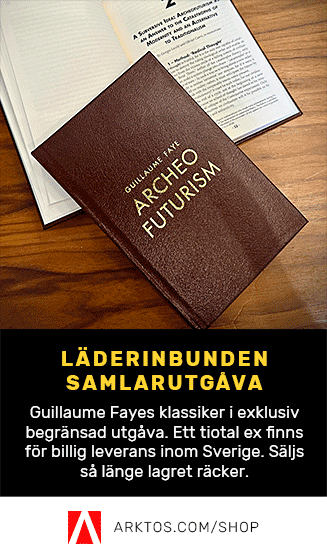Gott folk, idag får det bli ett copy/paste-jobb igen. Håll till godo.
After re-reading the Traditionalist thinker Julius Evolas magnum opus Revolt against the Modern World, what struck me was the extent to which Evola is praising pluralism and what even resembles anarchism in a sense. Evola appears to see the use of force to preserve traditional institutions as a sign of decadence, maybe even a sign that these institutions have already lost their sacrality. His theme seems to be that sacral authority is something that makes itself felt naturally.
I will here post some parts of the book that illuminates this:
”From a political perspective, the congenital ethos of the Germanic races conferred to the imperial reality a living, stable, and differentiated character. The life of the ancient Nordic-Germanic societies was based on the three principles of personality, freedom, and faithfulness. This life never knew the promiscuous sense of the community nor the inability of the individual to make the most of himself other than in the context of a given abstract institution; in these societies to be free was the measure of one’s nobility. And yet this freedom was not anarchical and individualistic, but it was capable of a dedication that went beyond the person, and it knew the transfiguring value that characterized the principle of faithfulness toward one who is worthy of obedience and to whom people willingly submit themselves. Thus, groups of devoted subjects rallied around leaders to whom the ancient saying did apply: ”The supreme nobility of a Roman emperor does not consist in being a master of slaves, but in being a lord of free men, who loves freedom even in those who serve him.”
Page 294-295 in Revolt against the Modern World
[More to follow]









